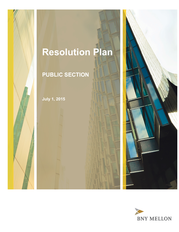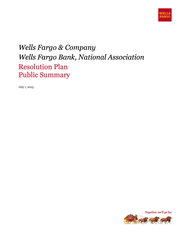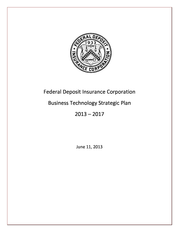Description
Apply for a Loan Modification
Stop living in fear of
losing your home
I
f you are having financial difficulties - due
to a job loss, a higher mortgage payment,
or any other reason - you are not alone.
The economic crisis has made it hard for many
responsible homeowners to make ends meet. The
good news is that many people who were finding
it difficult to make their mortgage payment have
been able to save their home, and you can too. You
could lose your home if you ignore the problem and
do nothing. Get in touch with a counselor and your
servicer (the company to whom you send your
monthly mortgage payment) today.
Your Servicer Wants to Help
Your servicer wants to help you keep your home.
Many servicers implemented new loan modification
programs in 2009 to assist homeowners experiencing
financial difficulties by lowering their monthly mortgage payments.
Plus, many servicers are participating in the government’s Making Home Affordable Program and are working with non-profit counseling agencies through HOPE NOW. Contact Your Servicer Today Many servicers have recently added new mortgage modification programs for home loans. Call your servicer even if your request has been turned down before, as you might qualify under a new program. Be patient and persistent if you don’t reach your servicer on the first try, as other homeowners are seeking help as well.
If you don’t know who services your loan or how to contact them, check your mortgage statement or look on-line at http://HopeNOW.com/index.php. In a mortgage loan modification, you and your servicer agree to permanently change one or more of the mortgage’s terms to make the payments more manageable for you. The changes could include reducing the interest rate, extending the term of the loan, forbearing (interest free) or forgiving principal, or a combination of these factors. Save Money A loan modification could lower your monthly mortgage payment by hundreds of dollars and save your home from foreclosure! Check Out Making Home Affordable The Making Home Affordable Program is part of the U.S. government’s plan to help families set an affordable mortgage payment.
The program lowers borrowers’ housing-related expenses (principal, interest, taxes, insurance, and assessments or PITIA*) to 31% of gross monthly income (before tax deductions). The program also will pay you up to $1,000 per year on your principal for 5 years if you make your payments on time. To qualify, you must meet certain eligibility criteria, including: 1. The home is your primary residence. 2. Amount owed on first mortgage for a single family home is $729,750 or less. 3. Mortgage dated before January 1, 2009. 4. First mortgage payment* is over 31% of gross monthly income. 5. You are having financial difficulty making your current monthly payment. Respond to Requests for Information You will need to provide your servicer with key documents under the program before a modification can be granted. Avoid missing a deadline by responding to requests for information and providing documents in a timely manner.
Information you will or may need readily available is listed in the following Borrower Modification Document Checklist. Borrower Modification Document Checklist †† Two most recent pay stubs †† Most recent Federal income tax return †† Form 4506-T - Request for Transcript of Tax Return (servicer provides) †† Most recent bank statement for 1 month (To verify direct deposits, e.g. social security, rental income, other income) †† Profit and Loss Statement (for self-employed borrowers) †† Hardship Affidavit (available at: http://makinghomeaffordable.gov/docs/ hamphardshipaffidavit.pdf Non-escrowed loans, Proof of Payment of: †† Most recent real estate taxes †† Homeowner’s (hazard) insurance Other Modification Documents †† Financial statement †† Utility bills †† †† †† .
Plus, many servicers are participating in the government’s Making Home Affordable Program and are working with non-profit counseling agencies through HOPE NOW. Contact Your Servicer Today Many servicers have recently added new mortgage modification programs for home loans. Call your servicer even if your request has been turned down before, as you might qualify under a new program. Be patient and persistent if you don’t reach your servicer on the first try, as other homeowners are seeking help as well.
If you don’t know who services your loan or how to contact them, check your mortgage statement or look on-line at http://HopeNOW.com/index.php. In a mortgage loan modification, you and your servicer agree to permanently change one or more of the mortgage’s terms to make the payments more manageable for you. The changes could include reducing the interest rate, extending the term of the loan, forbearing (interest free) or forgiving principal, or a combination of these factors. Save Money A loan modification could lower your monthly mortgage payment by hundreds of dollars and save your home from foreclosure! Check Out Making Home Affordable The Making Home Affordable Program is part of the U.S. government’s plan to help families set an affordable mortgage payment.
The program lowers borrowers’ housing-related expenses (principal, interest, taxes, insurance, and assessments or PITIA*) to 31% of gross monthly income (before tax deductions). The program also will pay you up to $1,000 per year on your principal for 5 years if you make your payments on time. To qualify, you must meet certain eligibility criteria, including: 1. The home is your primary residence. 2. Amount owed on first mortgage for a single family home is $729,750 or less. 3. Mortgage dated before January 1, 2009. 4. First mortgage payment* is over 31% of gross monthly income. 5. You are having financial difficulty making your current monthly payment. Respond to Requests for Information You will need to provide your servicer with key documents under the program before a modification can be granted. Avoid missing a deadline by responding to requests for information and providing documents in a timely manner.
Information you will or may need readily available is listed in the following Borrower Modification Document Checklist. Borrower Modification Document Checklist †† Two most recent pay stubs †† Most recent Federal income tax return †† Form 4506-T - Request for Transcript of Tax Return (servicer provides) †† Most recent bank statement for 1 month (To verify direct deposits, e.g. social security, rental income, other income) †† Profit and Loss Statement (for self-employed borrowers) †† Hardship Affidavit (available at: http://makinghomeaffordable.gov/docs/ hamphardshipaffidavit.pdf Non-escrowed loans, Proof of Payment of: †† Most recent real estate taxes †† Homeowner’s (hazard) insurance Other Modification Documents †† Financial statement †† Utility bills †† †† †† .
Personal Finance Presentations
+
Personal Finance Sub Categories
FDIC













